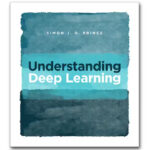Categories
![]() OVERVIEW
OVERVIEW
This course covers neural network architectures (deep learning), related math and the fundamental theory and application of AI algorithms most popular in the field of computer graphics. Programming assignments will help students develop graphics processing unit (GPU) programming skills while implementing concepts learned in lectures and readings using deep learning APIs on a GPU cluster. Generative Adversarial Networks (GANs) for facial animation is a project example.
OBJECTIVES
This course covers the fundamental theory and application of AI algorithms in the context of computer graphics. The course begins with deep learning basics including related math review (numerical analysis and gradient optimization). Building upon this foundation, students learn essential deep learning concepts including: supervised, unsupervised and reinforcement learning, and operations relevant to neural network architectures (like backpropagation and fine tuning). There is an emphasis on developing GPU programming skills while implementing real computer graphics applications using learned concepts. Two homework assignments, weekly quizzes and one take-home exam compliment these programming assignments and help students evaluate their comprehension of course material. The course culminates with student-designed final projects that demonstrate creativity, and a depth of knowledge in two or more course topics. Convolutional neural networks for colorizing black and white movies, transformers for image classification, and generative adversarial networks for stylized rendering are application examples.
Instructor: Dr. Corey Toler-Franklin, Computer Science Department, Barnard College, Columbia University
Contact: Office Milstein 502B, ctolerfr@barnard.edu ct3219@columbia.edu
Office Hours: TBD
Location: 203 Diana Center
Time: MW 11:40 am – 12:55 pm
Course Management: CourseWorks
PREREQUISITES:
Prerequisites: COMS W3157 Advanced Programming, Linear Algebra (UN2010), and Calculus I or higher.
**Contact instructor if you are not sure you are prepared for the course**
TEXTBOOK
Required
  |
Title: Understanding Deep Learning
Author: Simon J.D. Prince |
SYLLABUS
COMPS-BC3997 Section 003 Deep Learning for Computer Graphics
***weekly in class quiz dates
Late Policy:
Students are given 5 late days total for the course. These can be used without penalty for project 1 and/or 2 only. They cannot be used for the final project, homework or take-home exam.
There is a 10% per day late deduction up to a maximum of a 50% reduction for late programming projects (after applied late days). It is the expectation that all programming assignments will be submitted, whether late or not.
To use the late days, you must notify the instructor in writing (email) by the assignment due date and receive a confirmation email from the instructor. When you submit your project, you must indicate the number of late days you are using.
You do not have to use your late days if you have a university allowed excuse and supporting documentation. See your college’s Excused Absence Policy.
The homework solutions are posted quickly as a study aid for the take-home exam.
***NO LATE HOMEWORK accepted except for a university allowed excuse. ***